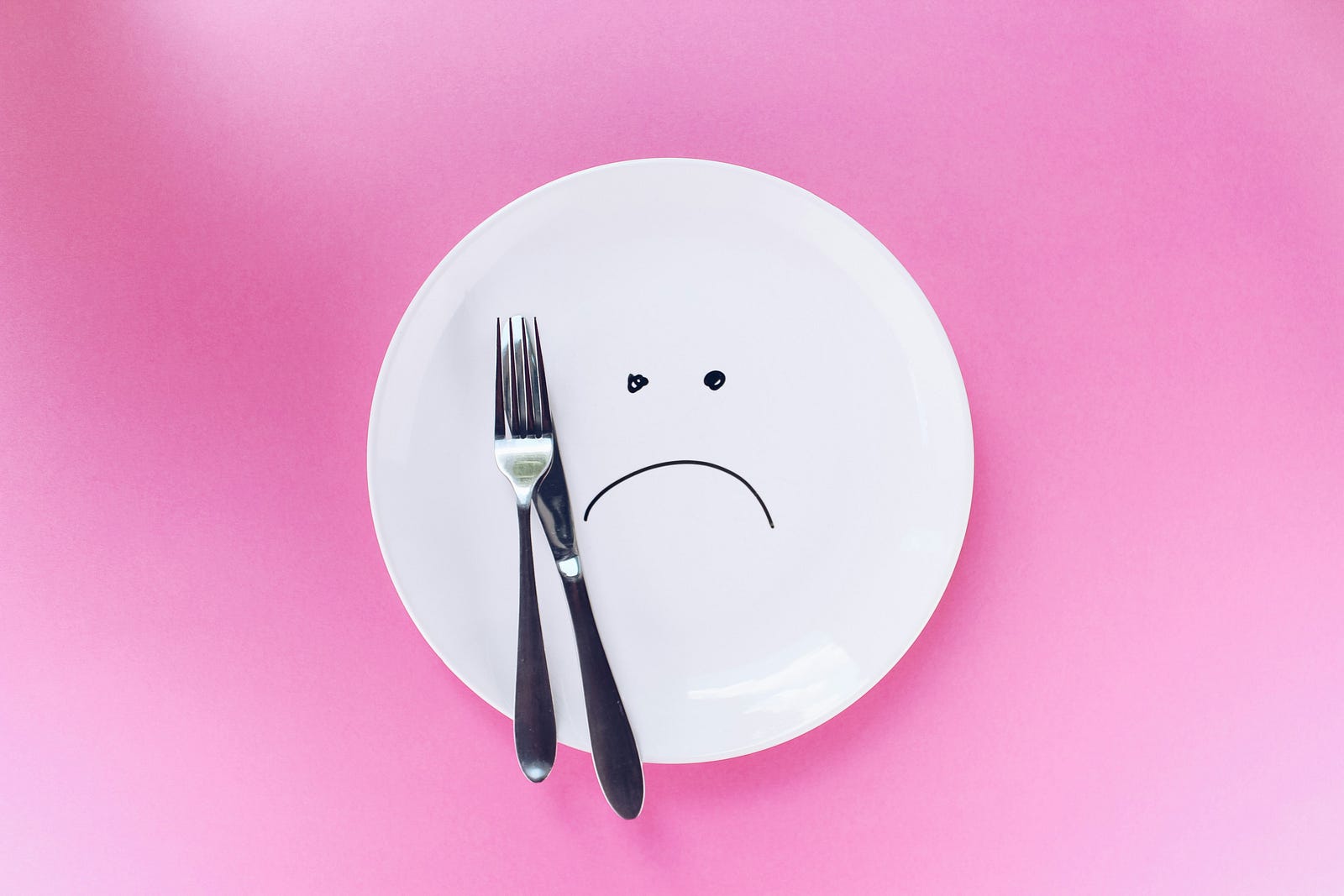I increasingly believe we are frequently off the mark regarding weight loss recommendations.
A patient failing to keep weight off (on a strict diet) recently asked me about my views on restrictive dieting.
And no, I am not going to focus on newer drugs such as Ozempic and Mounjaro.
Restrictive dieting can help you lose a few pounds in the short term.
I have used them right before bodybuilding physique competitions to shed weight and get ultra-lean.

It worked.
My abs emerged amidst this dietary suffering.
But for most, is that weight going to stay off permanently?
My experience as a physician with thousands of patients is no.
Obesity Is A Global Health Challenge
Here are some obesity basics:

- Obesity is a widespread issue, not just in the United States but globally. In the U.S. alone, 42 percent of the population is affected.
- Being overweight or obese is linked to a range of serious health conditions, including type 2 diabetes, cardiovascular disease, non-alcoholic fatty liver, high blood pressure, and cholesterol problems.
- Obesity is a chronic disease.
- Being overweight or obese is associated with type 2 diabetes, cardiovascular disease, non-alcoholic fatty liver, high blood pressure, cholesterol problems, and more.
- Obesity is associated with a shorter life expectancy.
Clinicians often recommend a 10 to 15 percent (or more) weight loss in individuals with complications of being overweight.
Such conditions include pre-diabetes, high blood pressure, and obstructive sleep apnea.
Do Diets Work?
I think you know what I am about to say.
The rise of Ozempic has made me reconsider how ineffective restrictive dieting has been historically.
A landmark 2021 clinical trial showed that those taking semiglutide (the active ingredient in Wegovy) lost nearly 15 percent of their body weight in about a year.
And those doing exercise and dieting?
Only two pounds.

Diets generally don’t facilitate long-term weight loss.
Remember that weight loss of 10 to 15 percent (or more) is typically recommended in people with complications (pre-diabetes, hypertension, obstructive sleep apnea, etc.) of excessive weight.
More Proof That Diets Are Ineffective
Numerous studies have documented the link between weight loss attempts and future weight gain.
One study shows this problem:
“Recent changes in body weight — weight gain, weight loss and weight cycling — were significant predictors of subsequent weight changes after controlling for age, baseline BMI and several lifestyle and behavioral characteristics as potential confounding factors.”
Diets, at the very least, do not help maintain weight loss.
You Can’t Pick The Best Weight Loss Diet
You cannot choose an optimal weight loss diet, given that none work over the long run.
I’ve seen patients not follow their restrictive diets carefully and never lose much weight.
Others quit over time, as few of us tolerate restrictive diets long-term.

And some do less physical activity as they drop their caloric intake.
I had a patient last week who did everything in her diet right and still did not lose weight.
Another thing: We must be skeptical about short studies in a research setting. Once the controlled calorie intake, physical activity, intensive counseling, and monitoring go away, weight loss may go poof.
A Systematic Review of Diets
It seems that everyone has a magic diet that works.
It has to be keto.
Or Mediterranean.
Or Paleo.
They have discovered the best diet for weight loss.

In this context, let me end with a systematic review and meta-analysis demonstrating the futility of restrictive diets for weight loss.
Researchers analyzed 121 clinical trials enrolling nearly 22,000 overweight or obese adults.
Participants followed one of 14 popular diets for an average of six months.
You know the names: Atkins Diet, Jenny Craig, Weight Watchers, Mediterranean, DASH, etc.
Study Results
The study investigators divided participants into three categories:
- Low-carbohydrate
- Low-fat
- Moderate-macronutrient (similar to low-fat but with slightly more fat and fewer carbs).
The good news? Weight, blood pressure, and cholesterol measures typically improved by the six-month mark.
The bad? The 12-month results were disappointing, to say the least.
While the low-carbohydrate and low-fat diet groups lost an average of 10 pounds by six months, the bitter truth is that most subjects gained back most of that weight within a year.
Blood pressure and cholesterol improved modestly by six months but generally returned to baseline after one year.

The notable exception? Reduced LDL (“bad”) cholesterol persisted in the Mediterranean diet.
Surprisingly, the various diet approaches showed no significant differences in other health measures, highlighting the need for a more effective strategy.
My Thoughts
The meta-analysis teaches us that it probably doesn’t matter which diet you choose for weight loss (low-carb versus low-fat or another).
Dieting alone is not a good way to lose weight in the long term.
(Admittedly, the meta-analysis included studies of an average duration of only six months.)
Actionables
For me, maintaining a healthy weight is about more than just dieting. It’s a holistic approach that includes eating well, engaging in regular physical activity, and making sustainable lifestyle changes.
My strategies include:
- Eating well. I prefer the Mediterranean diet. This approach often performs well in studies and is the only diet with long-lasting positive effects on LDL cholesterol levels.
- Physical activity. Every day. Sometimes, simply walking for 30 minutes.

Losing weight is extraordinarily challenging.
Correction: Maintaining weight loss over the long term can seem near-impossible.
Struggling With Weight?
Are you struggling with weight?
Please reach out to your healthcare provider, a dietician, or a health coach.
Choose the diet and lifestyle approaches that appeal to you and do your best to stick with them.
I find success by finding approaches that I enjoy.
A practical guide to the Mediterranean diet – Harvard Health
Making small, gradual changes to your eating habits and patterns is an easy way to incorporate the Mediterranean diet…www.health.harvard.edu
The Weight Loss Technique Few Talk About
medium.com
Thank you for reading “The Diet Trap: Why Restriction Backfires and What to Do Instead.”




